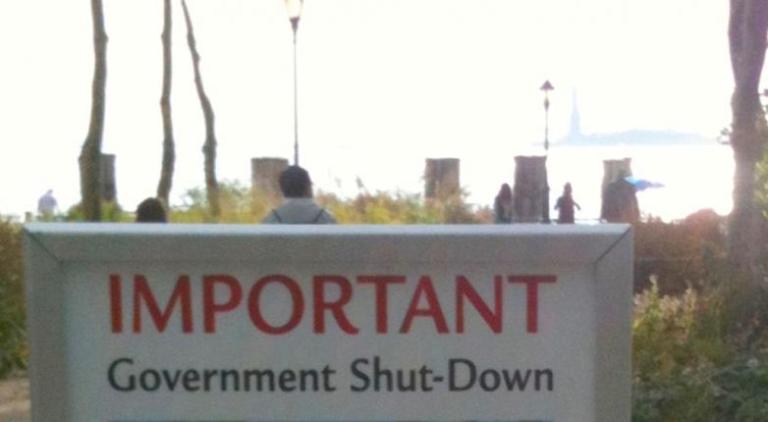
The federal government shut down on Saturday when its funding expired, due to the Senate failing to pass a House resolution keeping the money flowing. UPDATE: The shutdown is over.
During the Clinton administration, when Newt Gingrich was House Speaker, the conflict between the president and Congress led to shutdowns that lasted 27 days. Voters blamed the Republicans and punished them harshly at the midterm elections in 1996. (The most recent shutdown was a 16 day standoff in 2013 under President Obama. Again, Republicans were tarnished. See this for the 18 government shutdowns.)
Though all sides are blaming each other, this time it’s hard to see how Democrats can escape most of the blame, since they are the ones who voted against the bill to keep the government running. They resolved to vote “no” unless a measure was attached to allow the “dreamers”–children of illegal immigrants–to stay in the country.
Never mind that immigration policy is a very complex issue that needs much deliberation and has nothing to do with keeping the government open.
Let me propose two reforms that would keep this debacle–which still-Communist China is using to mock the alleged flaws of American democracy–from happening:
(1) Bills should only deal with one topic. This would prevent earmarks, but it would also stop poison-pill amendments designed to kill legislative measures as well as sneaking measures through by attaching them to a popular or must-pass bill. Just vote for policies one by one, on their merits.
(2) The federal government must have a budget. We haven’t had a budget for years. The executive branch proposes one, but it never gets passed by Congress. We have operated all this time by continuing resolutions, “temporarily” funding the government for a limited period of time and then having to do it again.
Every organization, from a family on up, needs to follow a budget. A federal budget sets priorities, controls spending, and funds needed initiatives. In fact, putting together a budget amounts to deciding on an entire legislative and executive agenda, so of course arriving at one is going to be difficult. Getting agreement between the president and congress is certainly going to be difficult.
Perhaps the Executive branch should set the budget, which can then be revised by the legislature, which would determine the total amount of money that could be spent. If a measure isn’t passed, we could still have an overall budget. Maybe a balanced budget amendment would force the issue.
Do you have any other ideas?
As for the current shutdown, “essential” functions–the military, social security, air traffic control, etc.– will continue to be funded. This raises the question of why the federal government is also funding so many “non-essential” programs. (See this for an explanation of what will be closed and what will continue operations.)
Notice that life goes on. Our state and local governments are preserving social order. Could it be that a federal government shutdown shows us not only the dysfunctions of Washington, D.C., but that the central government needs to be limited?
Photo, Statue of Liberty, 2018 by User:z22 (Own work) [CC BY-SA 3.0 (https://creativecommons.org/licenses/by-sa/3.0)], via Wikimedia Commons


















